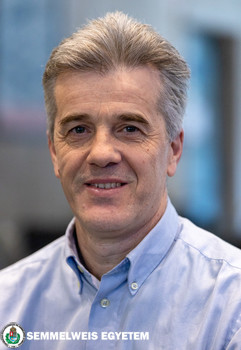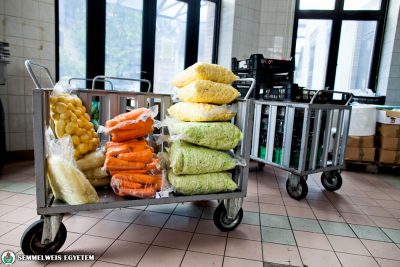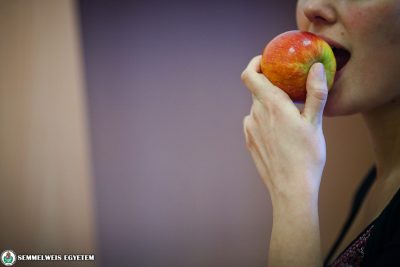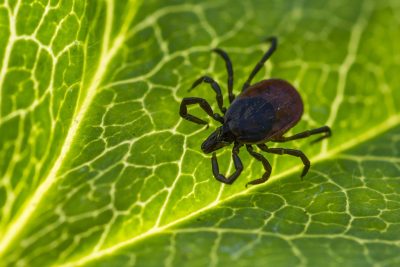Childhood obesity has become one of the most alarming public health concerns. In 2017, 29% of boys and 27% of girls aged 6–9 were overweight or obese in Europe, and the trend is growing steadily. According to experts, these children are likely to stay obese in adulthood, and more likely to develop diabetes and cardiovascular diseases at a younger age. Besides an increased risk of developing metabolic syndrome, adolescents who were obese in childhood are at increased risk of developing cancer as well, not to mention economic consequences.
 “In the first years of life, when food preferences are forming, guidance towards healthy eating patterns is essential. A child’s food preferences directly affect eating behaviour, which then has a direct effect on overall health, wellness and the risk of obesity. Unfortunately as children get older, they are exposed to unhealthy foods due to inappropriate advertising and the easy availability of processed food high in salt, sugar and fat either at home or in public institutions where they spend a considerable amount of time,” said Albert Zoltán Aszalós, project manager at Semmelweis University’s Health Services Management Training Centre (EMK).
“In the first years of life, when food preferences are forming, guidance towards healthy eating patterns is essential. A child’s food preferences directly affect eating behaviour, which then has a direct effect on overall health, wellness and the risk of obesity. Unfortunately as children get older, they are exposed to unhealthy foods due to inappropriate advertising and the easy availability of processed food high in salt, sugar and fat either at home or in public institutions where they spend a considerable amount of time,” said Albert Zoltán Aszalós, project manager at Semmelweis University’s Health Services Management Training Centre (EMK).
Currently, only a few EU countries are able to monitor processed food supply at the brand level. Food advertising and marketing to children is unregulated, and there is a sore lack of high quality food in many educational institutions, like kindergartens and schools”
– he added.
Being increasingly aware of the problem, scientists, healthcare professionals and health policy-makers joined forces to evaluate and implement strategic approaches to prevent childhood obesity and reduce disease risk. The European Union’s Joint Action Best-ReMaP started in October 2020 and currently incorporates 36 partners in 24 countries, with Semmelweis University and the Hungarian National Institute of Pharmacy and Nutrition (OGYÉI) as active participants of the discussion.
 The program seeks to improve the quality of food available to children throughout Europe by facilitating the adaptation and exchange of good practices in a number of fields, giving member states of the EU an opportunity to set childhood nutrition policies based on solid evidence and research. “First of all, we need to fundamentally change the food environment for children and adolescents. In order to do so, we would like to share and promote best practices on how to implement a standardized European monitoring system for processed food reformulation.
The program seeks to improve the quality of food available to children throughout Europe by facilitating the adaptation and exchange of good practices in a number of fields, giving member states of the EU an opportunity to set childhood nutrition policies based on solid evidence and research. “First of all, we need to fundamentally change the food environment for children and adolescents. In order to do so, we would like to share and promote best practices on how to implement a standardized European monitoring system for processed food reformulation.
Right now, industry actions are scattered and far from satisfactory. There is a large potential for improvement across policy domains and all related industries. Most probably, stricter government measures are needed to support industry efforts,” Albert Zoltán Aszalós pointed out.
“To reduce the impact of harmful marketing of unhealthy foods and beverages, we also need to develop harmonized protocols, to monitor exposure and thus, pave the way for restrictions. The United Kingdom set a good example in that respect, banning junk food advertisements online and before 9pm on television, from 2023 onwards,” he added.
As the project manager explained, the quality of menus in public institutions need to be improved as well, meaning the review of public procurement of foods in kindergartens, schools, social care facilities, hospitals and alike. In Hungary for example, since 1 January 2022 due to legal changes, public institutions such as state kindergartens and schools are required to source at least 60 percent of their food ingredients from local producers in a short supply chain.”This landmark decision gives room to more eco-friendly products from local suppliers, and thus, a healthier alternative to children” – highlighted Albert Zoltán Aszalós. On more distant targets of the Best-ReMaP project, the project manager outlined an initiative to build stakeholder networks in the field of nutrition at national and EU levels, and to create a food information database, which is designed to be a tool for member states to regularly report and explore national data that is also made available to researchers and public policy advisors.
On more distant targets of the Best-ReMaP project, the project manager outlined an initiative to build stakeholder networks in the field of nutrition at national and EU levels, and to create a food information database, which is designed to be a tool for member states to regularly report and explore national data that is also made available to researchers and public policy advisors.
Since its launch, the program has gathered a considerable amount of insightful information that has been made publicly available via their website, www.bestremap.eu and social media platforms, especially the project’s Facebook and Instagram pages. However, since Semmelweis University is in charge of the promotion of the project’s findings so far, the Health Services Management Training Centre (EMK) introduced a dynamic communication campaign that not only connects the participating countries, but has the potential to reach those affected. “Children aged 9 spend an average of 2 hours on the internet daily. In the light of that, we are joining forces with our project partners’ social media experts, to deliver a powerful message on the European scale and attempt to start a lasting change,” the project manager pointed out.
 As part of this endeavour, one of the Semmelweis graduates with a significant social media presence, Dr. András Kulja is supporting the consortium. Dr. Kulja, who was chosen as COVID Doctor of the Year in 2021, is a resident surgeon and is studying for an MSc at the Health Services Management Training Centre. His Tiktok account has an audience of over 100k subscribers, and some of his videos have been watched by over 1 million viewers. In accordance with the Best-ReMaP campaign, Dr. Kulja has posted a short video clip on how to make well-informed and health-promoting decisions while buying food at the supermarket, targeting a young audience. He is going to be followed by two more influencers, raising their voice for the good cause – better informed consumer choices,” explained Albert Zoltán Aszalós.
As part of this endeavour, one of the Semmelweis graduates with a significant social media presence, Dr. András Kulja is supporting the consortium. Dr. Kulja, who was chosen as COVID Doctor of the Year in 2021, is a resident surgeon and is studying for an MSc at the Health Services Management Training Centre. His Tiktok account has an audience of over 100k subscribers, and some of his videos have been watched by over 1 million viewers. In accordance with the Best-ReMaP campaign, Dr. Kulja has posted a short video clip on how to make well-informed and health-promoting decisions while buying food at the supermarket, targeting a young audience. He is going to be followed by two more influencers, raising their voice for the good cause – better informed consumer choices,” explained Albert Zoltán Aszalós.
Viktória Kiss
Photos: Attila Kovács – Semmelweis University


